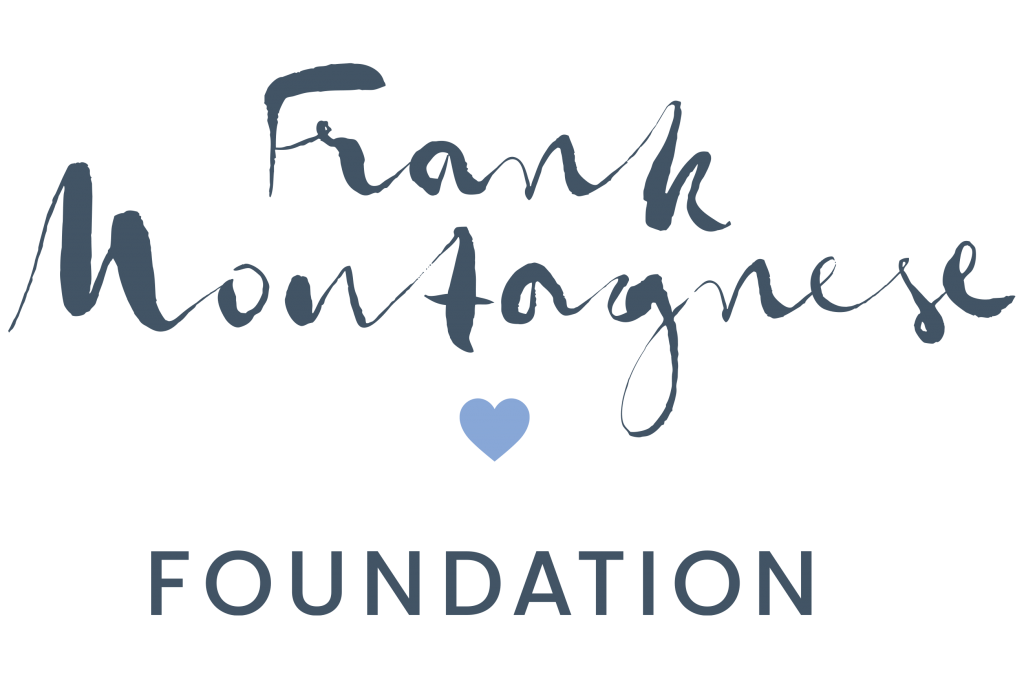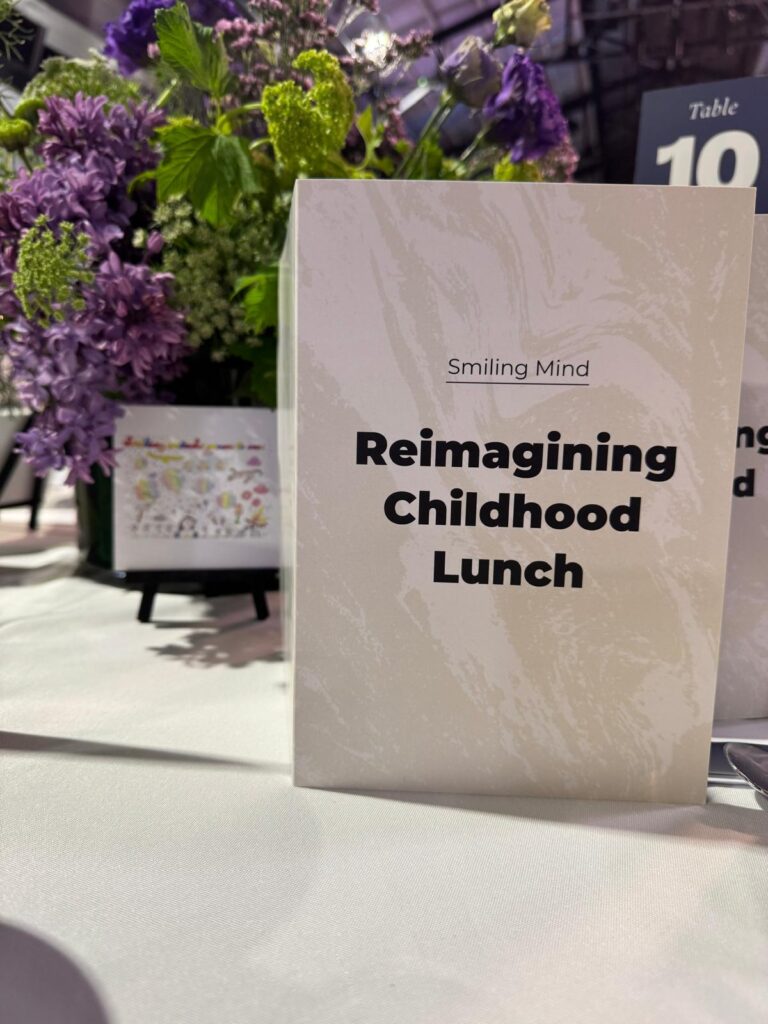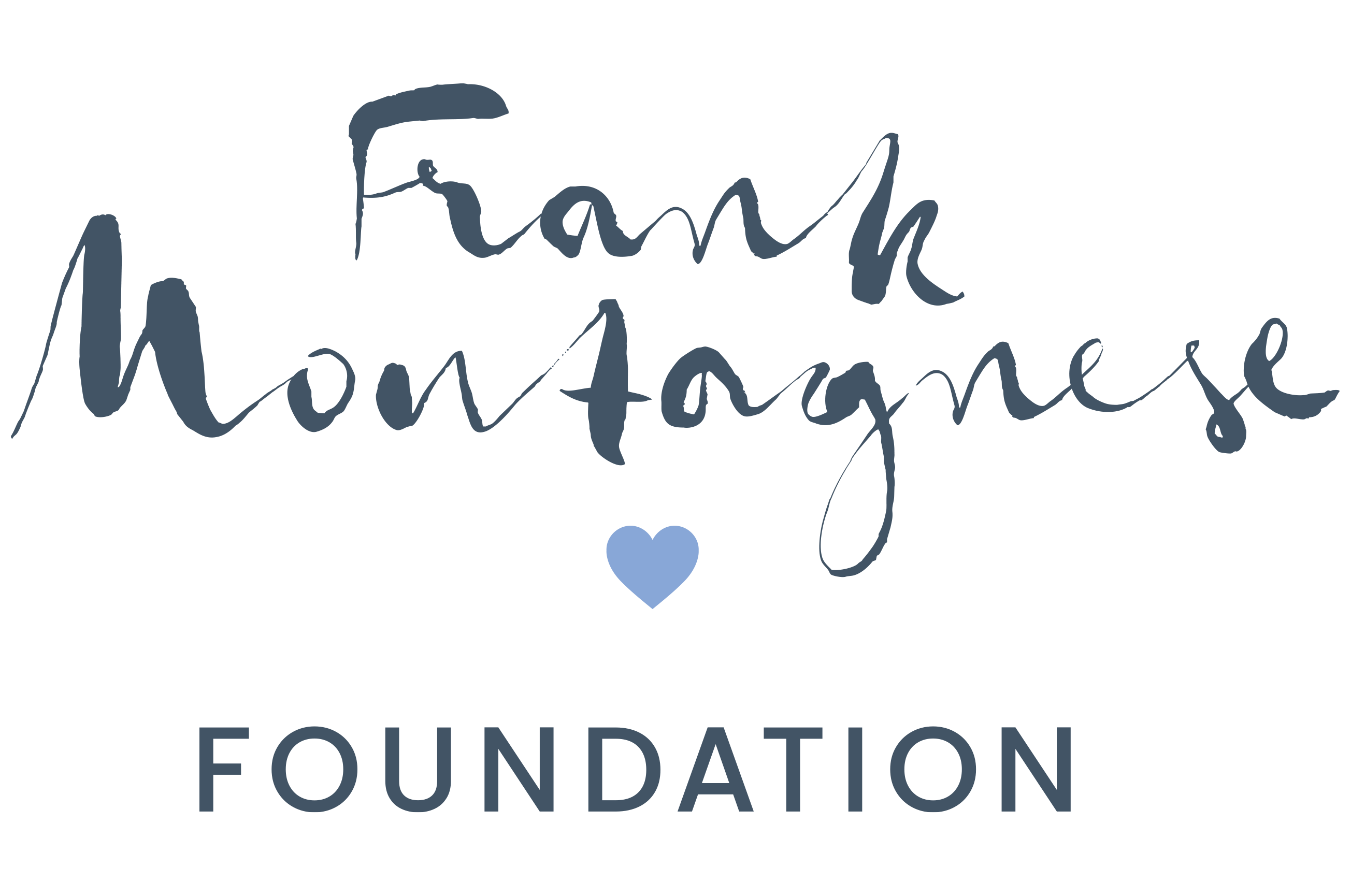Recently, the Smiling Mind “Reimagining Childhood Lunch” – supported by Melbourne Royal – gathered community leaders, educators and supporters to spotlight a powerful idea: every child deserves the chance to build resilience, confidence and connection, long before a crisis hits.
As the Frank Montagnese Foundation, we’re proud to highlight this initiative and reflect on the broader implications for our next generation.
The urgency of early intervention
There’s now clear evidence that mental health in children requires urgent action. Smiling Mind’s 2024 State of Mind report found that among Australian children aged 4-12:
- 42 % reported symptoms of anxiety. (Smiling Mind)
- 27 % reported stress. (Smiling Mind)
- 11 % reported signs of depression. (Smiling Mind)
Additionally, half of all adult mental health conditions begin before age 14. (Smiling Mind)
These sobering stats highlight that the challenge isn’t waiting for teenagers-it’s building quietly in younger years. That means prevention and “mental fitness” need to start early.
Smiling Mind’s approach: Mental fitness as practice
What sets Smiling Mind apart is its proactive reframing of mental well-being. Rather than waiting for distress and then intervening, their work is about equipping children (and the adults around them) with skills to thrive. Their language of “mental fitness” evokes daily practice-much like we expect physical fitness. (Smiling Mind)
Key features of their approach:
- A digital-led platform (the Smiling Mind App) with 700+ pieces of content for all ages. (Smiling Mind)
- A schools program (the Primary School Program) designed for Years 1-6, with ready-to-use lessons, professional development for educators, and a whole-school framework. (Wellbeing Program Guide – ACER)
- Research-driven evaluation, with independent studies by the Australian Council for Educational Research (ACER) showing positive outcomes when the program is well implemented. (people.acer.org)
For example, in the 2023 evaluation of the Primary School Program (delivered across 733 schools), students and educators reported meaningful wellbeing improvements, particularly when the program was enthusiastically delivered and extended into home life. (people.acer.org)
What the “Reimagining Childhood” event signifies
The lunch event marks a symbolic and practical moment: a community coming together to invest in something deeper than crisis response. Chefs, mental-health experts and supporters gathered—recognising that food nourishes not only the body but also memory, culture and connection. Through this shared table, Smiling Mind is emphasising why mental fitness matters: it’s interwoven with our childhood memories, social interactions and emotional development. (Smiling Mind)
For us at the Foundation, this resonates deeply. We believe in resilient communities where children learn to bounce back, ask for help, connect with others, and don’t wait until things break down.
Why this matters for the Foundation & our community
- Preventative shift: Too often, mental health is reactive. Smiling Mind flips that: teach skills early, build capacity, avoid escalation.
- Whole-of-community model: Children don’t live in isolation. Their well-being is shaped by home, school, and peers. The program embraces all those contexts.
- Evidence matters: With rigorous evaluations showing results, we’re not just “feeling good” about it-we’re backing what works.
- Scaling potential: Smiling Mind already reports over 5.1 million Australian app downloads and millions globally. (Smiling Mind) The challenge now is reach and equity: ensuring children in rural, First Nations, disadvantaged communities get access to.
- Alignment with our mission: At the Frank Montagnese Foundation, we are committed to empowering youth, strengthening community support and building lasting impact. Partnering or supporting initiatives like Smiling Mind’s helps us live that mission.
Looking ahead: What can we do?
- Advocate for embedding mental-fitness education in every primary school, so it becomes as routine as literacy and numeracy.
- Support community-based roll-outs in underserved areas (rural, remote, First Nations) so that no child is left behind.
- Amplify awareness: tell stories of children, families and schools benefiting from these programs-because personal narrative moves people.
- Collaborate with organisations like Smiling Mind to develop tailored content for specific communities or age groups (e.g., transition to secondary school, digital natives).
- Monitor and evaluate: keep tracking the metrics (stress/recovery, emotional regulation, academic focus) so we understand where the gaps are and how best to close them.
The “Reimagining Childhood” lunch was more than a fundraiser-it was a signal. A signal that we can’t wait for mental health problems to show up in adolescence or adulthood. We must build the foundations early: emotional intelligence, focus, connection, and self-regulation.
With Smiling Mind’s evidence-based tools, meaningful school partnerships and national reach, we have a chance to rewrite the story of childhood in Australia.
And as the Frank Montagnese Foundation, we’re ready to step up, speak out and act alongside organisations leading the change. Because when children are mentally fit, communities thrive.



